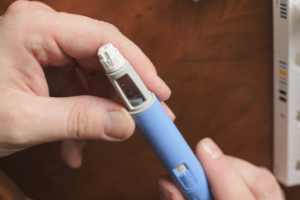What is Glimepiride (Amaryl)?
Glimepiride is available under the brand name Amaryl, and it belongs to a class of drugs known as sulfonylureas. It is an oral diabetes drug that is used to treat type 2 diabetes. Type 2 diabetes refers to a chronic condition where the pancreas cannot produce enough insulin or use it properly. As a result people with diabetes experience high blood sugar levels because glucose cannot enter the cells in their body on their own. This medication works by helping the pancreas release insulin. Insulin is a hormone which helps absorb glucose into the body’s cells to be used for energy. The drug is usually part of a treatment program that also involves diet and exercise. Glimepiride can be used alone or in combination with other diabetes medication such as metformin.
Glimepiride side effects
Remember that your doctor prescribed this medication because they beleive that the benefit of using it outweighs the risk. However, taking glimepiride can lead to side effects such as hypoglycemia. Hypoglycemia refers to a medical condition characterized by extremely low blood sugar levels.
Symptoms of hypoglycemia include:
- Sweating
- Irritability
- Lightheadedness
- Headache
- Fatigue
- Nausea
- Intense hunger
- Dizziness
- Fast heart rate
Hypoglycemia can be treated by taking fast acting sugar such as non diet soda, hard candy or table sugar. If left untreated, hypoglycemia can become severe leading to symptoms such as unconsciousness, seizures, confusion, blurred vision, nightmares, or numbness in tongue or lips. In case you notice any of these symptoms, you should visit your doctor for medical intervention. Taking amaryl can also lead to severe skin reaction that could lead to death. If you notice symptoms such as irritated eyes, red or swollen skin, sores in nose, throat or mouth, you should seek medical attention immediately. This medicine can also lead to liver damage.
Symptoms of liver damage include:
- Itchy skin
- Nausea
- Vomiting
- Dark colored urine
- Edema (swelling in ankles and legs)
- Stomach pain
- Jaundice (yellowing of skin and whites of the eyes)
Other glimepiride side effects include:
- low blood cell counts with symptoms such as infections or bleeding which does not stop as fast as usual.
- Low sodium levels with symptoms such as headache, nausea, vomiting, irritability, coma and cramps may also develop when you take this medication.
Disclaimer: Please note that the contents of this community article are strictly for informational purposes and should not be considered as medical advice. This article, and other community articles, are not written or reviewed for medical validity by Canadian Insulin or its staff. All views and opinions expressed by the contributing authors are not endorsed by Canadian Insulin. Always consult a medical professional for medical advice, diagnosis, and treatment.





